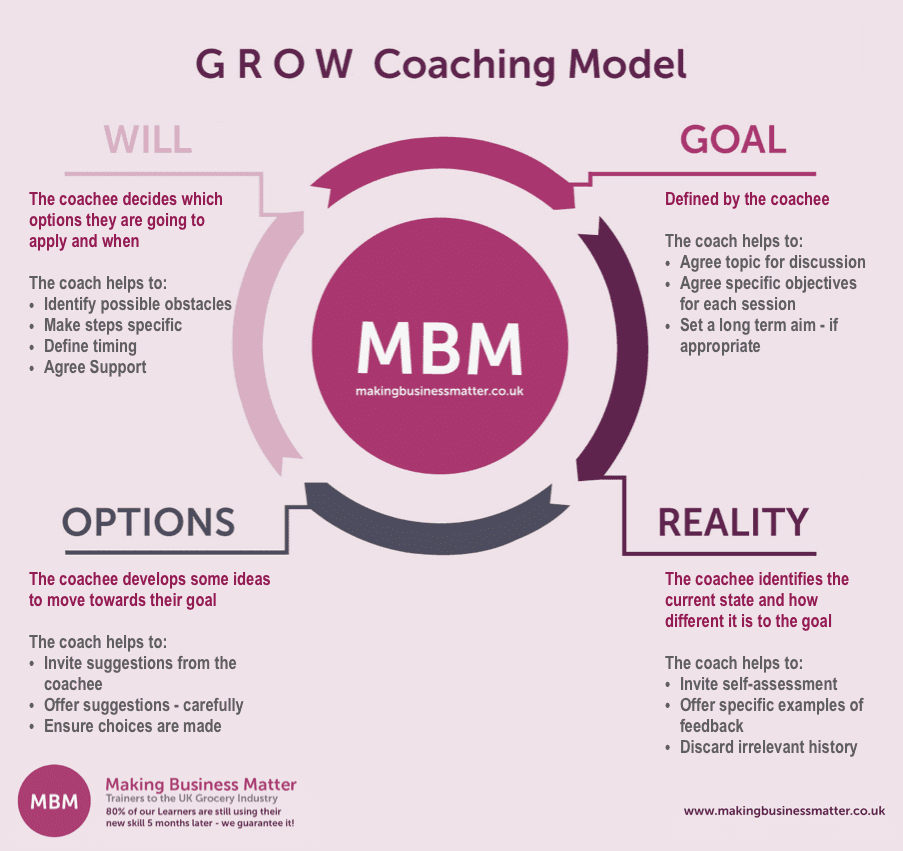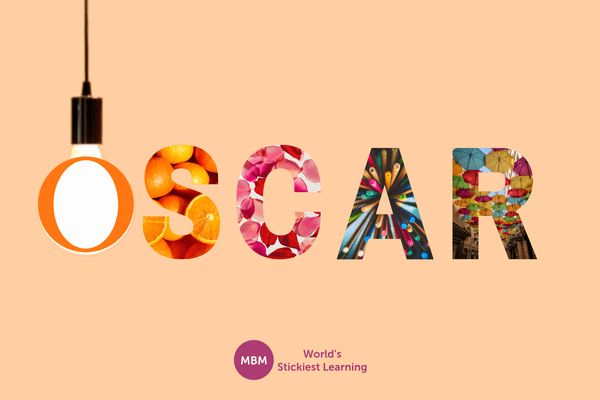Coaching, an Everyday Occurrence?
Have you ever had one of those conversations where it begins, ‘I’m glad I have seen you’? It could be with a sibling, friend or colleague and the conversation begins to happen. They present an issue they have, they may have thought about it for a while and need to chat it through. As they explain and you listen, deeply listen trying to put yourself in that situation. As the conversation progresses, you interject at certain points asking pertinent questions such as ‘what are your options?’
Answers range from low to higher risk strategies aiming to find that right approach or action to take. You end up in a place where, no matter where you are, it’s just you two discussing the presented subject. A set of strategies emerge and you both appear back into the real world. Both happy for the conversation, one from a supportive point of view, one with a plan of action.
It never ceases to amaze me how many times I see, hear and experience this and yet we never recognise the supportive nature. Looks like coaching to me! Then step in the people who ‘know’. Ah but Will, did they really listen? Did they work to the GROW model (see below), did they provide a non-judgemental approach and ask magic questions? Don’t get me wrong, there is a process for coaching. There is, just like in management, a suggested path or approach that has been tried and tested.
When I think back to these types of conversations, there is very little difference in the approach I took then and now. Ok, maybe some were over a beer, but the general approach was right. When I reflect on my own approach, it’s pretty close to how I would set up coaching now. My intention was right, I wanted to listen and be a sounding board for a moment in time.

Coaching as an Everyday Pursuit
When in conversation with development experts, coaching is usually lauded as the highest form of development. An opportunity to work 1-2-1 with a professional, to enhance your own performance or, look to change a direction. Coaching is a 1-2-1 activity which is timely yet should produce big impacts. I see this kind of intervention as a ‘planned development activity’. This is something that you know is going to happen and can prepare for. Just like any learning intervention it needs preparation, there is the contracting and the mental preparation for starters.
There is another type of coaching though, like the opportunities mentioned in paragraph 1. This is everyday coaching, as a manager, this is unplanned and often on the spot. I cannot think of a better time to provide development to an individual than the spur of the moment and, in essence, give coaching in an informal everyday manner. Throughout the teams I have managed, I ensure that I have a relationship with each person. Often, we can build a deeper relationship by talking through these issues.
Everyday Coaching Can Just Happen
This type of one on one is not planned for, space is not created, the conversation just happens. I worked for a manager once, a great manager who just had a great way with people and teams. He knew instinctively when someone was out of kilter. He had a skilful way of working up to the conversation. Taking you for coffee or a quick catch up on another issue he would ask ‘all good with you?’ Knowing how to create that safe space, dedicating that time just for you and posing the right questions.

That is not just great ‘everyday coaching’, that’s great leadership. He would listen, look away as though he was going to provide the answer then ask ‘ideas? do you know how to solve this?’ You never really knew if he has the answer, but you were sure he could help you create a workable solution. Never judging, always supportive working with me through what could work. Always ending on ‘I knew you would get there Will, always got faith in you, now go make it happen’. I was young at the time, he would always give me a reassuring ‘hand on the shoulder’. A wonderful example of everyday coaching and the best management and leadership I ever experienced.
It’s Not You – It’s Them!
When my daughter was very small, we would work on jigsaws together. These were eight-ten pieces usually of a popular child’s character from television. I will never forget the first time she completed one on her own. Trying different pieces, turning them around attempting to make pieces fit when they didn’t. Upon placing the last piece, she instinctively threw her arms in the air and shouted, ‘look daddy look’! I was there in body and mind.
While I suggested playing with the jigsaw, made the time and provided the dedicated focus for her only. The success came from her, not me. Where the reference was a completed picture on the box, she took her own time and completed the jigsaw. After this, she completed it in much less time and then we introduced multiple jigsaws. We, as coaches can not claim the success, it is not ours to claim.
Whether we practise everyday coaching or coach formally on life or work, the role of a coach is very rarely to tell. How easy would it have been for me to complete the jigsaw for my daughter? That would have been a shocking way to approach some very valuable time. Yet this happens, coaches who forget the true nature of coaching and intertwine mentoring or even just telling. There is a richness in someone finding their own way through. Their ideas are so much more powerful and with that comes a dedication to make it happen. Why would we rob someone of that success, that self-fulfilment?
Sticky Learning ® is 7 times more effective than 1-day training courses. Plus, you will get a Chain of Evidence proving your Return on Investment. Discover soft skills training that changes behaviours long term.

The Unknown Element
I didn’t know my daughter would complete the jigsaw that day. I had not planned for that mini success. John Borland, in his book, ‘Coaching into the Great Unknown’, writes clearly about coaching being ‘out there’. John helps us consider emerging themes that occur within the time spent with an individual. This is always the unknown element. John asks us not to fear the unknown in coaching and I believe this to be right. While there may be a model or a set of questions as a foundation, it should be the individual being coached who leads us. They will introduce many different elements into the conversation some that we are never prepared for.
Coaching then becomes more than the practical issue or vision, it is about the whole person. Any decision they choose to make will affect them. Be it a planned change of role or some change in their personal life we aid change through practical strategies.
All coaches will have experienced training in what coaching isn’t. It’s not therapy, not counselling, not training or teaching or mentoring. Have you ever been in a coaching situation with a coach which included one of these approaches? It’s not good, in fact, despite the genuine supportive nature of them it’s cringe-worthy. So where is the balance? How do we go from a well-intended layperson who naturally helps you consider a situation to coach?
Just like management, I believe it is a practised methodology, to be aware of and learned. However, I do believe there are people who just can and some that, well, just can’t. I am close to people who just want to give advice. Bad coaching is as damaging as bad management and the effects can remain unseen. My previous manager knew how to practise everyday coaching and lead well, he was a true natural.
Coaching Needs Time and Space
Very often in coaching training, we hear ‘allow the individual the time to think’. Absolutely right of course, but to think about what? I personally believe this also applies to us as coaches. The toughest sessions can be those where the coachee is not mentally prepared for the session or their attention is diverted elsewhere. The answers they provide are short, delivered without thinking or defensive. This is our challenge to face, out time to consider the original point of the individuals coaching. I often see on the faces of managers or trainee coaches the fear of silence.

While coaching is often seen as altruistic, it is also the responsibility of the individual in coaching to equal the effort. Simple questions such as ‘are you ok today’ or ‘you seem distracted’ can get the conversation moving again. Very often the ‘mood’ links directly to the coaching. Some coaches fear these questions as they can appear too searching or direct. What is the point of this intervention if not to challenge? I don’t really see the difference in this when we manage and lead. The right intervention at the right time with time and space to solve an issue or create something great. It is all integrated.
Coaching in the Present and Future
Within the opportunity to find time and space can be a sense of finding oneself. An opportunity to introspect, understand ourselves today, right now. One very important aspect of this is that coaching is always a present and forward-looking activity. As stated above, this is not therapy nor counselling, coaching is not there to heal, however much we may want to help. This element belongs in the past, not the present or the future.
I am strong in my personal feelings on this as I am not a qualified professional in these areas, nor I am there to fix people. I have come across so many individuals who have received then halted coaching where the lines have become blurred. While I agree with the notion of coaching the whole person, there is a clear purpose for coaching. Generally, the coachee sets this. The purpose does stray as lives are complicated and interconnected.
A Time to Call Their Own
Coaching is about the space and time to think, allowing the creation of ideas and building them into strategies. As a coach, I am always amazed at how remarkable idea generation can be. Often these ideas come from nurturing a focussed thought and allowing it to grow.
The space that the coachee is in is an allowable space, one that is not judged, challenged yes, never judged. This is an opportunity for freedom of thought and the generation of new plans. Within that space and time, there will always be moments of emotion and brilliance. This is theirs to have, their moment of realisation, their moment to wonder where that idea came from. It is a satisfying moment, a personal breakthrough either emotionally or otherwise. Within that time, we, as coaches need to be at the top of our game. This is the time that great plans are made, actions and moreover, a commitment to those actions is shaped.
Final Thoughts
Coaching is a powerful intervention. It takes understanding, clarity, time and space. It is also a skill that is omnipresent. This could be the planned intervention, or less formal, everyday coaching during the time created with our families or as leaders and managers.
As a leadership tool, this is an opportunity to engage individuals and teams. I take my lead from previous managers, in a moment of absolute chaos, they created a space and a time to think. All it takes is an appreciation of the now, great knowledge of their team and the guts to say ‘stop’. That moment is critically important, an opportunity to gather our thoughts and question ourselves.
Self-reflection is as important as the mirror we hold up for others. These opportunities can create better versions of ourselves, to create our own time and space and generate our personal breakthroughs.
Action: For even more useful content on coaching, check out our ultimate guide on Coaching Skills.




